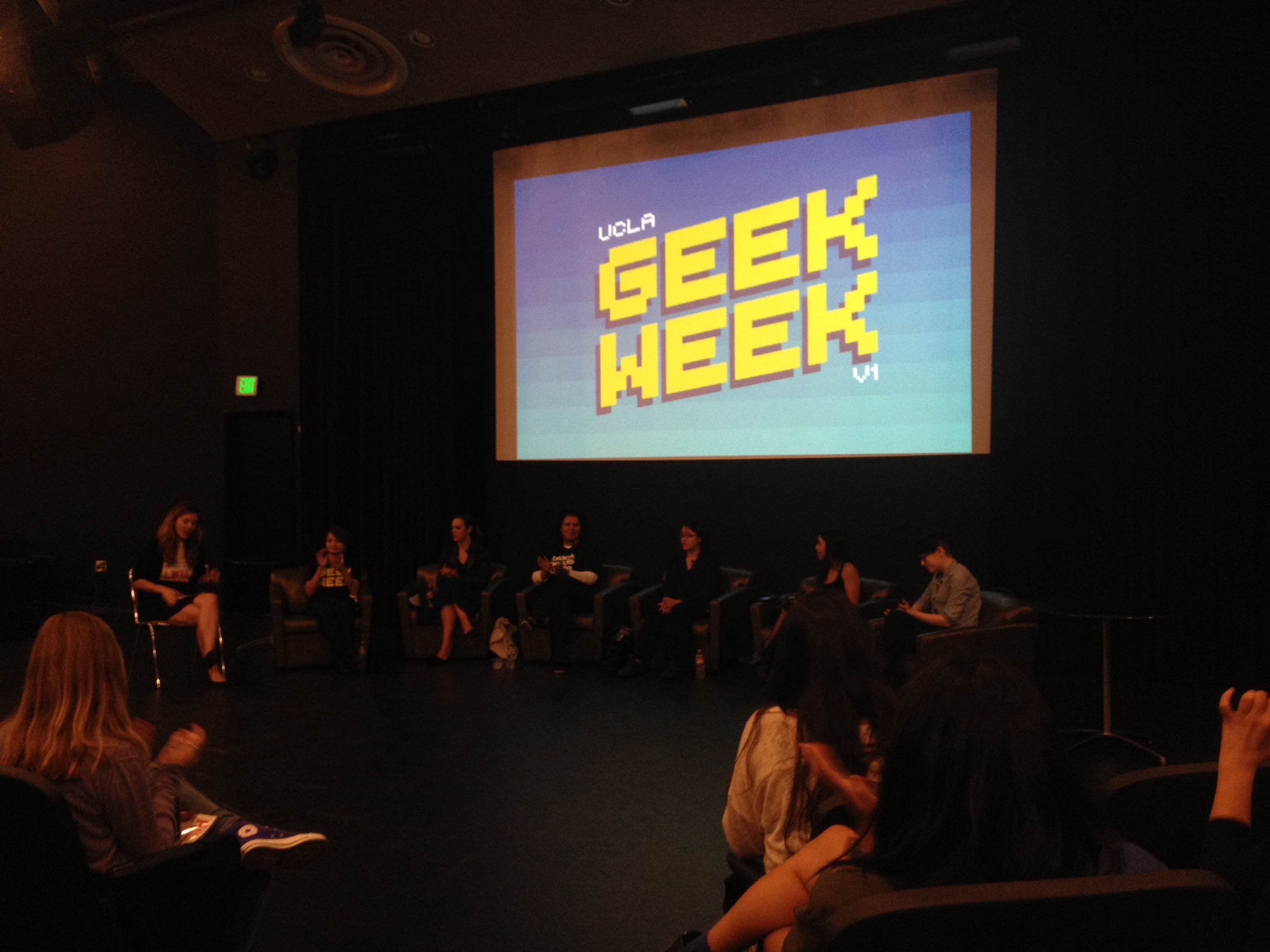Geek Week at UCLA – Nerd Girl Panel

When I heard about this event, I honestly didn’t know what to make of it. Initially, I thought the panel was going to discuss superhero themed questions and vaguely mention feminism here and there. I was excited to hear everyone’s opinion and even thought of some silly questions to ask them. Although the panel had its light hearted moments, I’m glad that the panel tackled serious feminist topics.
The Nerd Girl Panel was composed of five women: Erin Cahill, an actress who’s famously known as the Pink Power Ranger from Power Rangers Time Force, Ivy Noelle Weir, who won the American Library Association Emerging Leaders Class of 2015, Marissa Lee, Co-Creator of Racebending.com, Dr. Andrea Letamendi, a psychologist, educator, and co-host of The Arkham Sessions: A Podcast on the Psychology of Batman, Angela Sanchez, one of very few female magicians in the world with a UCLA graduate degree in Student Affairs, and finally, Dr. Safiya Umoja Noble, an assistant Professor in the Graduate School of Education and Information Studies here at UCLA.
The questions ranged from more silly ones like, “What would your she-ro superpower be?” to more thought provoking and personal questions such as, “What is something that would you tell your younger selves?” Regardless of the topic, each person answered the question through a feminist’s perspective that tackled topics such as institutionalism, racism, or sexism.
Despite the fact that they touched on many feminist and humanist topics, all of their answers pertained to one central theme: the representation of women in geek culture. In very simple terms, geek culture refers to a fandom of a plethora of different mediums such as novels, films, comic books, any form of technological interest, etc.
Originally, the word “geek”,was coined to categorize a person who didn’t really fit in with societal norms. In the past, when you thought of the term “geek”, you may have thought of a very stereotypical character with large framed glasses, strange fashion, and pocket protectors –someone like Steve Urkel, for example. However, the way we perceive a “geek” has drastically changed. Although there are still some negative associations with being a geek, it’s nothing like it was in the past. Whether a geek has become more mainstream or not, geek culture has forever changed from the stereotype built in the 80’s and 90’s. Rather than ostracize geek culture, modern society has accepted geek culture to the point where it has become a trend within the last year.
One thing, however, hasn’t changed all too much: our perception of the term geek is usually associated with white males. Although there is more than enough data that exemplifies an even split between male and female fans within geek culture, data alone cannot erase the social constructions that exist in our society. For generations, women were generally not seen as competent, especially in intelligence, which resulted in a lack of representation.
The speakers heavily discussed this perception and the equally disturbing notion of having only one female character represent every woman in fiction. For example, they all touched upon the idea of having one female in the group –like the Black Widow in The Avengers– carry all the aspirations, thoughts, and overall representation for every girl. Ivy Noelle Weir explained that there is internalized misogyny with wanting to be “the only girl” in geek culture, which creates a problematic relationship between women. Rather than band together because of a similar interest and embrace their identity, this form of internalized misogyny leads to an unhealthy perception of girls wanting to be “one of the boys.”
Dr. Safiya Umoja Noble further elaborated on the subject by ending the conversation with, “We have to reject the notion that being smart, intellectual, and curious aren’t our identities.” You can imagine how loud the audience cheered after that statement.
Overall, the Nerd Girl Panel was a wonderful experience that I wouldn’t have traded for anything else. I’m even a little angry at myself for thinking this event wasn’t going to be as awe-inspiring as it was. As UCLA’s first ever Geek Week, I’m glad to say it went extraordinarily well and I’m definitely looking forward to this event again next year.




